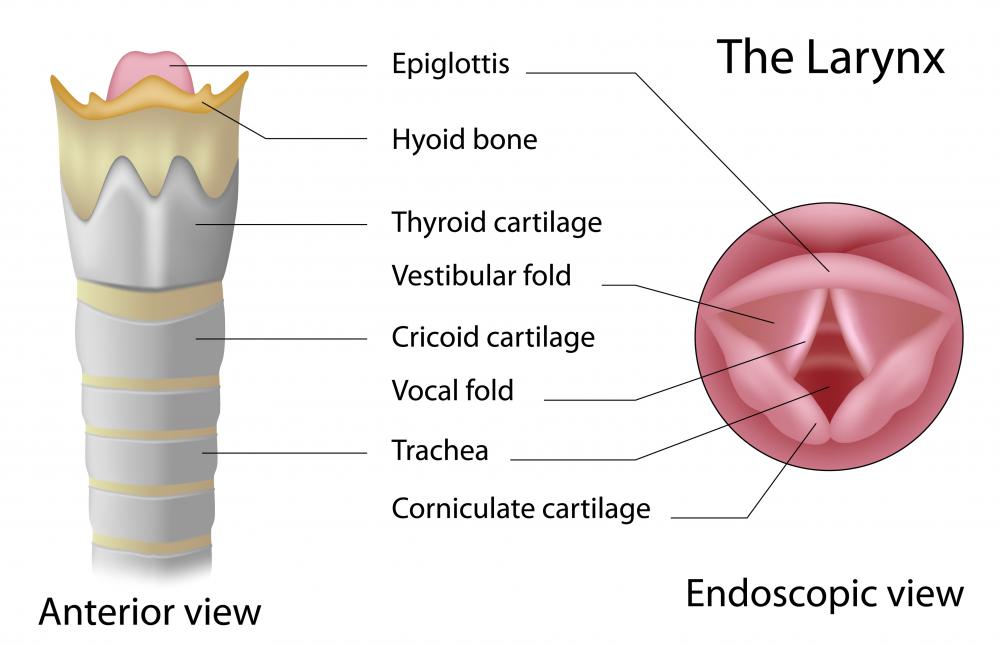At WiseGEEK, we're committed to delivering accurate, trustworthy information. Our expert-authored content is rigorously fact-checked and sourced from credible authorities. Discover how we uphold the highest standards in providing you with reliable knowledge.
What Is the Laryngeal Nerve?
The laryngeal nerve is a nerve of the larynx in the throat. Also known as Galen’s nerve for the Roman physician who discovered that this nerve is essential to the ability to produce sounds, it is a branch of the vagus nerve, the major cranial nerve that innervates the organs of the gut. The nerve bifurcates into two of its own branches, the superior and recurrent laryngeal nerve, with the superior nerve further subdividing into the internal and external laryngeal nerve.
Arising from the vagus nerve, the nerve originates in the brain rather than the spinal cord. Whereas the spinal cord features 31 pairs of spinal nerves, with one pair exiting the spine for each vertebral segment, 12 pairs of cranial nerves exit the brain, with the vagus nerve the tenth of 12. As both a sensory and motor nerve, the vagus transmits afferent signals toward the brain from sensory receptors on the structures it innervates as well as efferent signals away from the brain that indicate a motor function to be performed. In other words, the vagus can conduct signals from the laryngeal nerve to the brain about changing internal or external stimuli in the larynx, and from the brain to the laryngeal that tell the muscles of the larynx to contract, forming sounds.

From its point of origin in the medulla oblongata at the very bottom of the brain stem, the vagus nerve exits the bottom of the skull to either side of the spinal cord via an opening called the jugular foramen, entering the neck. Here four smaller branches divert from the vagus nerve: the pharyngeal nerve, superior cervical cardiac nerve, superior laryngeal nerve, and the recurrent or inferior laryngeal nerve. The latter two nerves innervate the larynx and its muscles.

Crossing to the front of the larynx is the superior laryngeal nerve and its external and internal branches. The internal branch supplies the laryngeal mucosa, also known as the laryngeal epithelium, which is the lining of the vestibule of the larynx. It also supplies the glottis, which includes the vocal folds. This is a sensory nerve, sending signals from the larynx to the brain. Motor signals from the brain to the larynx, specifically to the cricothyroid muscle, are transmitted by the external branch of the superior laryngeal nerve. The cricothyroid is the only muscle of the larynx that is innervated by the superior nerve.

Delivering motor signals from the brain to the majority of the muscles of the larynx is the recurrent nerve, the second laryngeal nerve. This nerve enters the larynx via the cricopharyngeus muscle on either side after first descending into the chest, wrapping around the aortic arch and right subclavian artery and giving off branches there, and ascending back into the neck. In the larynx it transmits both sensory and motor signals: sensory to the subglottis, the bottommost portion of the larynx where it forms the trachea; and motor to the vocalis and various arytenoid muscles, the intrinsic muscles of the larynx.
AS FEATURED ON:
AS FEATURED ON:
















Discuss this Article
Post your comments